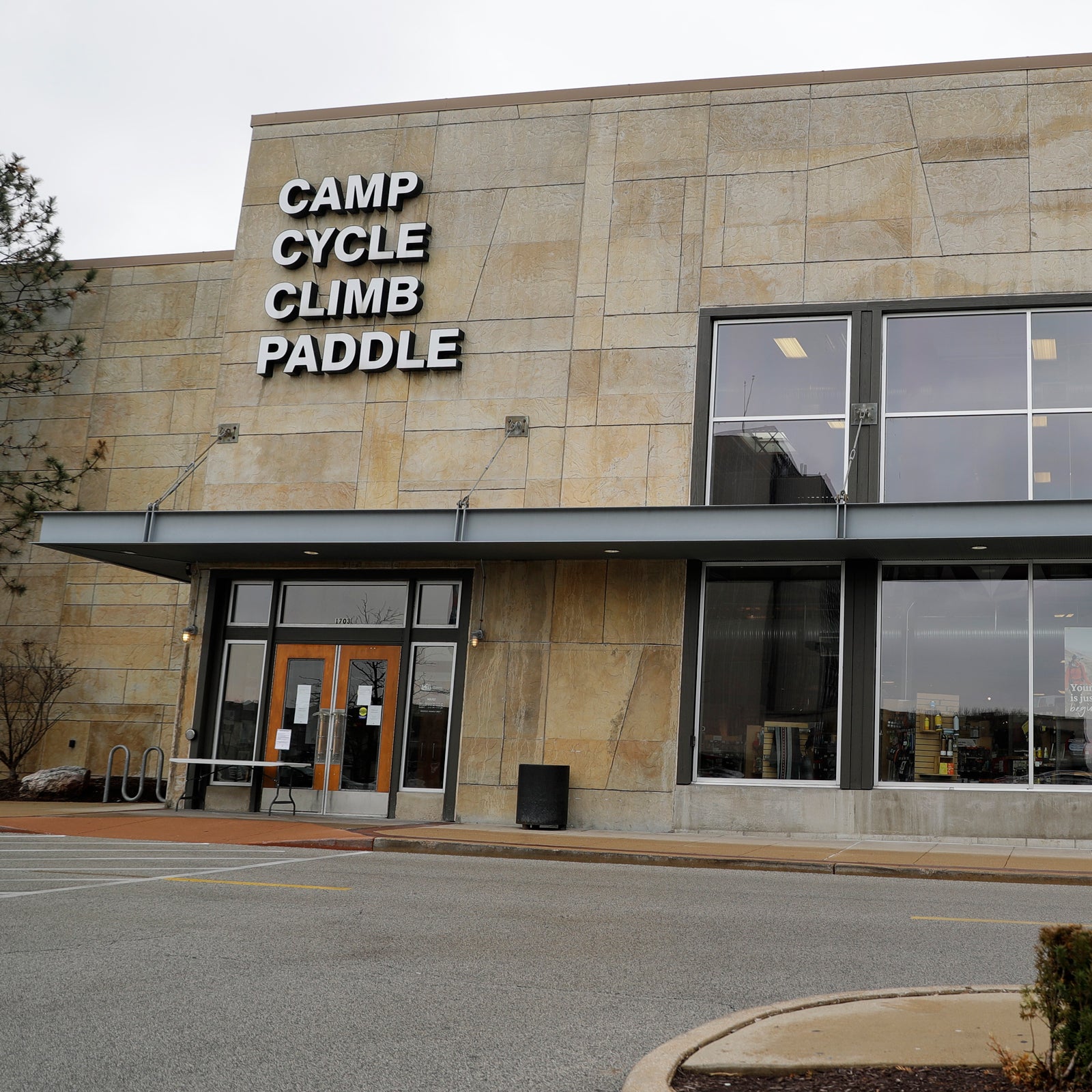The Evo flagship store, which is usually bustling with people buying skis, boards, and bikes, is around the corner from my house in Seattle. It’s��in the same building as a skate park and two of the best restaurants in the city, across the street from a very good dive bar��and my go-to coffee shop.��
On Monday morning, the whole block was quiet, and when I went by Evo, the shop was technically open but eerily empty. By noon, the retailer, which started as an online shop��but now has five brick-and-mortar stores across the country, announced that it was closing all of its locations until at least March 29 in response to the spread of the coronavirus. “There’s no playbook for this one,” Bryce Phillips, Evo’s founder and CEO, told me. “If you had asked me 48 hours ago what our plan was, my answers would have been completely different.”
In the U.S., Seattle is ground zero for the COVID-19 outbreak, and we’ve been dealing with the fallout since late January. The city is also home to major outdoor retailers and brands like K2,��Outdoor Research, and REI, all of which are trying to figure out what to do in the face of the virus. My ghost neighborhood is a reflection of what’s happening—and what’s likely to continue—in the outdoor world, particularly as we all make split-second decisions based on ever changing government directives and a spiraling economy.
VF Corporation, parent company of the North Face, Smartwool, Vans, and more, has temporarily shut down its U.S. businesses, after closing stores in Europe, the Middle East, Africa, and Asia starting last month. Patagonia is shutting down all operations through at least March 27, and REI has closed its 162 stores for the same time period. (Both brands��will continue to pay employees, and REI will continue to fulfill online orders.) “Our decisions are grounded in the belief that there are more important things than business right now—we owe that to one another,” REI president and CEO Eric Artz said in a .��
Of course there are much more important things than business. And, yes, it feels a little callous to think about gear at��a time like this. But this isn’t just about whether or not you can get a new down jacket. According to the , the outdoor-recreation industry makes up 2.2 percent of the economy. In 2017, it contributed��more than $412 billion, more than both agriculture and mining that year. A hit to the outdoor-retail market spirals out into other sectors of business. Like so many parts of the service industry, retail is a web connected to jobs, income, childcare, and health insurance. When strands are removed, the whole thing starts to fall apart. Social distancing over the long term could be devastating for people whose livelihood depends on in-person interactions—many hourly workers stand to lose their jobs, and many retailers are likely to shut their doors for good.
“It goes beyond retail. It’s the devastation that’s happening for people who really don’t have the ability to take the hit,” Evo’s Phillips said.
In the outdoor world, especially in seasonal sectors like bikes and watersports that depend on spring sales, that harm could be devastating. The retail advisory firm is predicting that this could be a record year for permanent retail-store closures due to coronavirus. that up to 15,000 retailers could close in 2020, a significant increase from the previous record of 8,069 in 2017.
In this pandemic climate, where time span, severity, and impact are still all up in the air, retailers��from giants like REI��to family-owned local shops are struggling with what to do to keep their employees, customers, and businesses healthy, especially when they’re not sure how long a shutdown might last. They don’t want to close too soon��and miss out on tenuous revenue, but they don’t want to be holdouts when human health is at risk.��
“There is no getting around the fact that the only way to try to limit the spread of the virus is to do further damage to the economy,” New York Times economic reporter Peter Goodman said in Monday’s episode of , which covered the coronavirus-related financial downturn. “If we don’t do that, this pandemic is going to kill a lot of people and do economic harm.”
In light of those impacts, larger retailers��like Evo or REI��have more flexibility to keep paying workers and planning for the future. In an internal memo to staff, Phillips said he felt good about Evo’s financial standing, even in the face of a likely��recession, and that the company will continue to pay workers for their scheduled hours. Smaller independent shops can’t be so sure they can say or do the same. Adam Jaber, owner of , a ski and bike retailer that has locations in West Dover, Vermont,��and West Springfield, Massachusetts, said they’ve decided to shut the Vermont shop��and limit the hours and services in Massachusetts. People can return rentals��and pick up online orders, but employees��won’t be fitting boots��or doing anything else that requires close contact.
“This is going to come to an end at some point, and people are definitely going to remember how businesses reacted.”
Jaber said��they’re trying to ride the line of being helpful to their communities��without endangering their customers or staff. The shops are small enough that he doesn’t think any of his employees will be devastated by a few weeks off work, and he said his family has offered to step in and help the workers who might struggle if the shop stays closed for an extended period. But they’re still figuring out how to run the business as they roll into bike season. He added that��they’re trying to follow ��and keep their eyes on long-term planning. “The idea is that people won’t completely end their lives, at least for now, so if that means getting someone on a bike, and that I need to go in person to get them a bike they ordered, it seems like the right thing to do,” Jaber��said. “To stop that seems counterproductive. We want to make sure everyone is good mentally, too.”
Thinking ahead is the hard part, because everything is changing so quickly. No one is sure if the shutdowns will last weeks or months, how severe things might get over time, and how long it will be before their output overwhelms their income.
Retailers are still trying to figure out the playbook��and make day-by-day decisions. At Evo, Phillips said��they’re still fulfilling online orders, as long as it continues to make sense for its��staff, because it’s helpful to have a major stream of income still coming in. At its��online distribution center, in Sumner, Washington, the company is implementing creative ways to keep workers healthy. Evo has��created a PTO bank, where salaried employees can contribute paid time off��to hourly workers. Those days can be used in lieu of sick days for folks who aren’t able to work in light of the virus. “They can reach out to HR and say, ‘I lost my childcare, and my spouse is out of work,’ and use some of those hours,” Phillips said, adding that he’s been overwhelmed by how much people want to help��and how quickly his team members have tried to protect each other. Other retailers, like Amazon, haven’t been as thoughtful, and workers are unhealthy conditions.
As outdoor people, we’re constantly addressing risk. Running a business in the face of a pandemic feels like traveling in avalanche terrain: How can you make good decisions with limited information? Even if your choices don’t hurt you��or your party, how could you impact someone else? Everything slides downhill, and retailers are making decisions based on rapidly changing forecasting.��
That’s because we don’t yet know what the COVID-19 curve is going to be like in the U.S. The only thing we do��know is that social distancing helps prevent the spread��and that, in the long term, it’s incredibly important to , to keep as many people as possible safe. As in any risky situation, it’s better to be lame and safe than bold and dead. That calculus becomes so much harder when people’s livelihoods hang��in the balance, but retailers say they know that the exponential spread isn’t worth risking.
We’re facing dire economic times. As the virus spreads globally, the retail economy can be an indicator for how the world reacts. closed its China offices and retail stores February 7. Now its��offices and 90 percent of the stores in that country are back open. Retail-store traffic is down significantly from last year, but the company said��it’s improving. That’s likely going to be the story across the globe, as we come out the other side of COVID19—whenever we do.��
I’m antsy. But I’m also grateful that my neighborhood currently feels dark but safe, and that will be important to remember when this is all over. Retailers are banking on that. Like restaurants, hairdressers, and every other service sector, it will be crucial to infuse money into the retail industry when it’s safe to do so. It just remains to be seen how long businesses will be able to hang on.
“This is going to come to an end at some point, and people are definitely going to remember how businesses reacted,” Colorado Ski Shop’s Jaber said. “I’m not exactly sure how to define it, but we’re trying to be on the right side of it.”��


